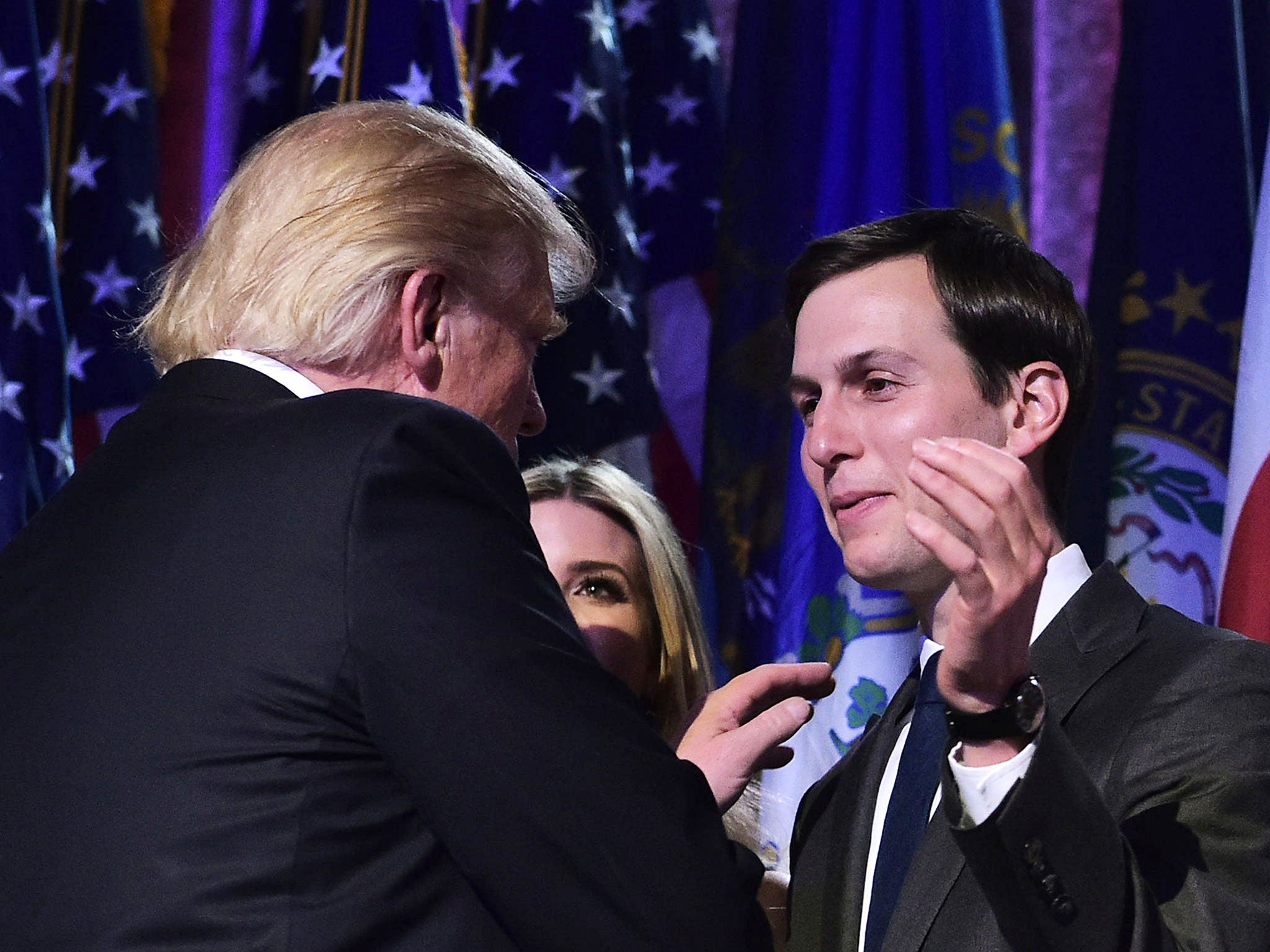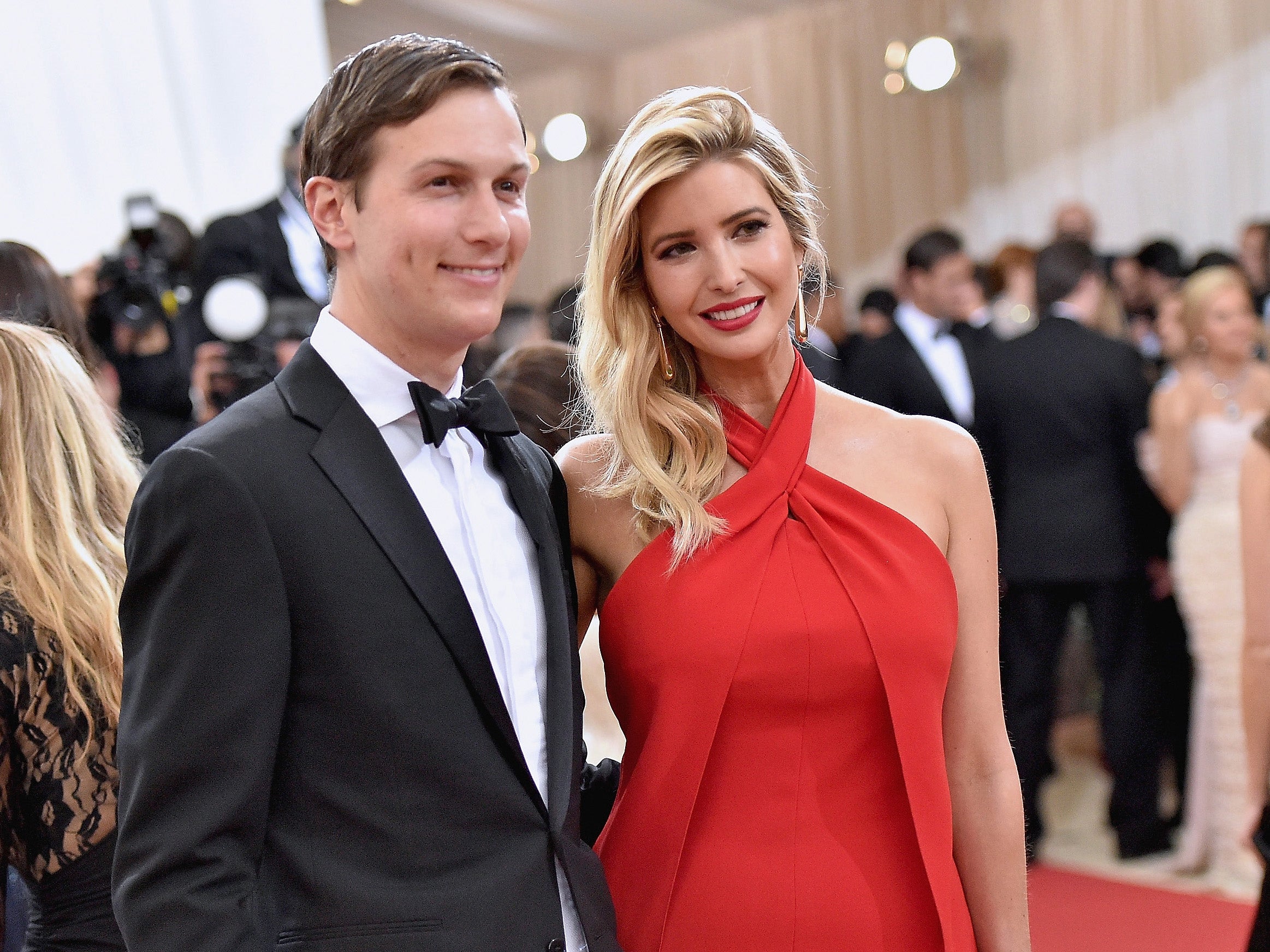Donald Trump's son-in-law Jared Kushner attacked over conflicts of interest after White House appointment
House of Representatives Judiciary Committee members raise concern over 'potential conflicts'

Your support helps us to tell the story
From reproductive rights to climate change to Big Tech, The Independent is on the ground when the story is developing. Whether it's investigating the financials of Elon Musk's pro-Trump PAC or producing our latest documentary, 'The A Word', which shines a light on the American women fighting for reproductive rights, we know how important it is to parse out the facts from the messaging.
At such a critical moment in US history, we need reporters on the ground. Your donation allows us to keep sending journalists to speak to both sides of the story.
The Independent is trusted by Americans across the entire political spectrum. And unlike many other quality news outlets, we choose not to lock Americans out of our reporting and analysis with paywalls. We believe quality journalism should be available to everyone, paid for by those who can afford it.
Your support makes all the difference.Donald Trump’s son-in-law is to shed a raft of positions and shares to avoid potential conflicts of interest when he takes up his new role as senior White House adviser.
Jared Kushner, who is married to the President-elect’s daughter Ivanka, will not be paid for his post working on trade and the Middle East but the appointment has raised alarm over his business links.
The 36-year-old has taken legal counsel that the position does not violate anti-nepotism laws, transition officials said, and does not require confirmation from the US Senate, unlike other cabinet posts.
But in order to comply with federal laws and after consulting the Office of Government Ethics, Mr Kushner will take a number of steps to divest substantial assets.
His legal adviser, Jamie Gorelick, said he would resign from his positions as chief executive of the Kushner Companies and as publisher of the New York Observer and divest from any interests in the weekly newspaper, Thrive Capital, the 666 Fifth Avenue office building in Manhattan and any foreign investments.
In addition, Mr Kushner will remove himself from participating in matters that could have a direct effect on his remaining financial interests.
They include real estate in the New York area, his wife’s interest in the new Trump hotel in Washington and the Ivanka Trump Brand fashion business, representatives said. He will file a public financial disclosure form.
Democrats on the House of Representatives Judiciary Committee have asked the US government to review “a number of legal issues” over Mr Kushner’s appointment.
In a letter to the Justice Department and US Office of Government Ethics, the group said the resignations and divestments announced so far may not “be sufficient to avoid potential conflicts”.

“Moreover, Mr Kushner’s White House position may allow him to influence policy that benefits his business interests,” the committee members said, citing taxation as one example.
The New York Times reported that Mr Kushner met with the chairman of the Anbang Insurance Group, a company with links to the Chinese government, days after the presidential election over development plans for 666 Fifth Avenue.
As well as numerous foreign investments from countries including China and Russia, the newspaper reported that his real estate firm, Kushner Companies, took a loan from Goldman Sachs, which additionally invested in Mr Kushner’s technology company Cadre.
He was said to be a leading voice urging Mr Trump to appoint the bank’s president, Gary Cohn, as his chief economic adviser.
Other lenders to his businesses allegedly include Israel’s largest bank, Bank Hapoalim, which is under investigation by the US Justice Department over allegations it helps wealthy Americans evade tax.
The President-elect announced the appointment on Monday, saying Mr Kushner was a ”tremendous asset and trusted advisor throughout the campaign and transition”.
Ms Gorelick, who served as Deputy Attorney General in Bill Clinton’s administration, said Mr Trump’s appointment of his son-in-law did not violate a 1967 anti-nepotism law.
She said Congress authorised the President to hire White House office staff “without regard” to federal personnel laws like the anti-nepotism statute in 1978, and that court rulings had determined the White House was not an “agency” as defined under the anti-nepotism law.
“I'm not saying that there isn't an argument on the other side, and I respect the people who have made the argument on the other side. I just think we have the better argument,” Ms Gorelick added.
Mr Kushner, a New York property developer, emerged as an important voice early in his father-in-law's presidential campaign, being involved in personnel decisions, strategy and fundraising.
Ms Trump has been a close adviser to the President-elect but will not take on a role in her father's administration but will focus on settling her family in Washington.
The couple will undertake significant divestments of their wide-ranging financial portfolios as they prepare for their move to Washington from New York.
Mr Kushner is to work closely with incoming White House Chief of Staff Reince Priebus and senior strategist Steve Bannon in advising the new President.
Mr Trump has vowed to rewrite international trade deals to make them more favourable to the US, as well as pledging to move the US Embassy in Israel from Tel Aviv to Jerusalem, despite international concern over damage to long-standing American support for a two-state solution.
It is not the first time Presidents have roused controversy over alleged nepotism.
Bill Clinton was criticised in 1993 for choosing his wife to lead his healthcare reform drive, while John F Kennedy chose his brother Robert as Attorney General after being elected in 1960.
Additional reporting by Reuters